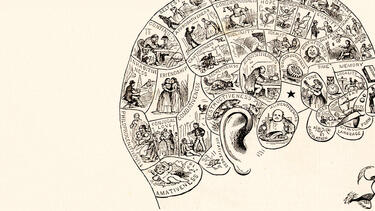Research
When Should Organizations Change Their Mix of Products?
To formulate an optimal product mix, managers need to understand how departmental budgets and information sharing within a company can affect decision making, according to a new study co-authored by Yale SOM’s Rick Antle.

Do Startups Pay Less?
Today, many young people are forgoing careers at established firms to join startups. Yale SOM’s Olav Sorenson investigated whether they are making the right financial choice.
Study Shows Bias Against Investment Recommendations from Women
Women in the investment profession face a double standard even when objective information on their performance is available and their evaluators are incentivized to not discriminate, according to a new study by researchers at the Yale School of Management and the Columbia Business School.

Listeners Glean Emotions Better from Voice-Only Communications
A new study suggests that simple phone calls might be sufficient for bringing together far-flung colleagues.
Why Consumers Prefer Products Made by Mistake
New research by Professor Taly Reich and her collaborators suggests that revealing mistakes in designing or manufacturing a product can enhance consumer preference.

Should Online Advertisers Pay for Clicks or Sales?
A new paper provides insights into how both advertisers and publishers should think about which model to choose.

How Fair Is American Society?
Americans tend to be overly optimistic about economic equality between white and black citizens, according to a new study by Yale researchers.

Integrated Communities Benefit More from Venture Capital
A new study suggests that mixing people of diverse backgrounds leads to more innovation and more economic growth.

Companies That Look for Social and Cognitive Skills Seem to Do Better
Computers are able to do many tasks, but people still outperform them at human interactions and complex decision-making. A new study suggests that successful companies take advantage of these capabilities.

Seniors Aren’t Learning to Choose Better Prescription Insurance Plans
Seniors picking prescription plans through Medicare Part D often aren’t choosing the plans that offer the best value.